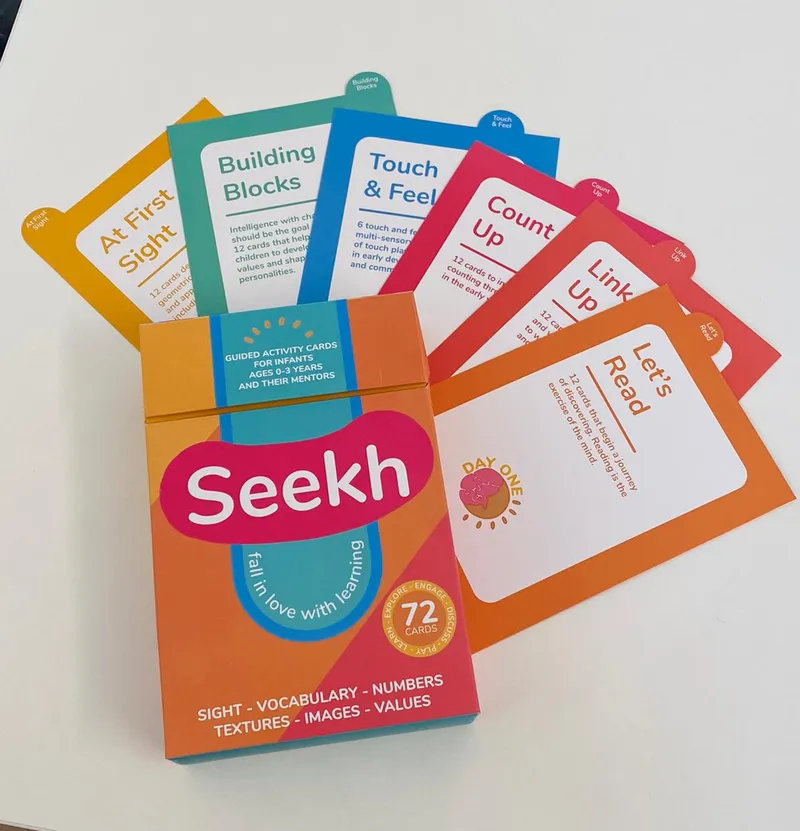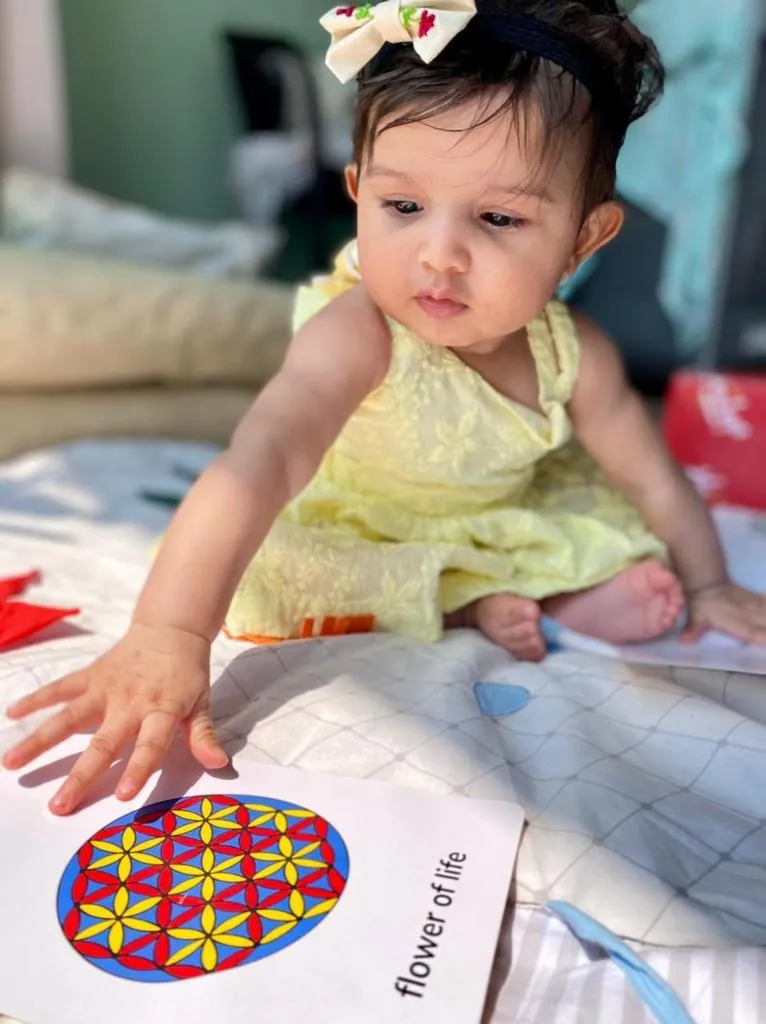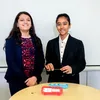This 14-year-old has designed an interactive learning programme for infants and toddlers
Avantika Kampani, a student of Dhirubhai Ambani International School, Mumbai, has launched Seekh, a learning programme targeted at parents of children between 0 and 3 years with the help of learning experts, doctors and psychologists.
Over the course of a year, we have been bringing you stories of young entrepreneurs from all over India, who are honing their skills at the Young Entrepreneurs Academy (YEA!).
Students as young as 13 or 14 years are finding business ideas in different domains, from media, baking, art and craft to sport.
This week, we feature Avantika Kampani, a 14-year-old student from Dhirubhai Ambani International School, Mumbai, and her startup, Day One, which is focused on children’s growth and development. Her product, Seekh, is targeted at parents of infants and toddlers up to the age of three years.
“My baby cousin lived with us until he was six months old, and I was fascinated with him. I began noticing the way he looked at things around him, the curiosity and alertness. I realised babies are made for so much more than eating, sleeping and burping. I started researching more on early brain development to find that from birth to the age of five, a child’s brain develops more than any other time in her life,” she says.
From idea to product

The Product
Avantika discussed this in her YEA! class and with her mentors, Namita Thapar, Ateet Sanghavi (entrepreneurs) and Garima Jindal (corporate employee). They helped her develop Seekh – an early development programme from just an idea to a product.
With the help of YEA!, she began talking to early learning experts, doctors and child psychologists, and launched Seekh in 2020. She also collaborated with artists on the design aspect of the product.
“Seekh is a learning tool that comprises interactive flashcards, with each one helping a child's brain grow, as well as giving parents tips on how to strengthen their child's character from day one,” says Avantika.
According to her, Seekh is divided into six sections, with 72 cards, each one helping a different part of the child’s brain to develop and grow. These include -
At First Sight - Inspired by energising sacred geometry, each card has its own complexity and gives the child something different to look at, keeping their attention intact and helping them develop new neural connections. The three colours used are primary colours - the first colours that a child can see after just seeing in black and white.
Count Up - The dots on the cards symbolise quantities so instead of associating the number with how it’s written down, the child will associate the number with its quantity, strengthening their logical reasoning and understanding
Touch and Feel - Each flash card has a circle that has a different material like jute, velvet, sponge, sandpaper that the child can touch and feel. Through this contact, new-borns are able to learn about their world, bond with their caregiver, and communicate their needs and wants.
Building Blocks – This gives the parents tips on how they can bond with their child, and at the same time, instil values like curiosity and creativity within them.
Let’s Read - Basic words, in the colour red as it is the most attractive to a child, the child will memorise these words as patterns, therefore strengthening their recall capabilities as well as synapses.
Link Up - The child will look at a shape, and when the parent calls out the name of the shape, the child will associate the object with that particular word, creating a better sense of surrounding.
Learning on the go

Baby Maleha with Seekh
“Every stage of creating and executing, Seekh had its own ups and downs, whether it was the multiple mock-ups and designs that needed to be created before finding and settling on the perfect one, or pricing the product at a value that was not too expensive, but still extremely profitable,” says Avantika.
She adds that Seekh cards are also easily translatable allowing it to grow despite language barriers. The design of the Seekh box is also compact and portable, making it travel friendly, capturing the idea of ‘learning on the go’ perfectly.
Avantika used the prize money from the YEA! investor panel as initial investment. In the first three months of its launch, over 200 units of Seekh were sold at Rs 999 a pack, and bought by brick and mortar stores such as Just Moms and Fun school as well as parents and families. She also uses her Instagram page @amavantikakampani to popularise Seekh.
“Before I opened the Seekh pack, I thought it would just be like any other set of flash cards available online. But once I opened it, I knew it was different – from the way the different groups of cards were stacked, the colourful and attractive layout, and the intensely researched content. Patterns, colour combinations, textures, I can say, every card is a product of science. As a doctor, I am extremely impressed. My six-month-old daughter, Maleha Sirsat, adores them and it keeps her busy for a good period of time,” says Dr Mosam Mehta, one of Seekh’s first customers.
Avantika tells parents to “think of Seekh as an investment into your child’s future”.
Under her company Day One, Avantika plans to introduce several more products to help enhance child and infant development. She is extremely passionate about music, and has already begun her research on how Hindustani classical tunes can help a child’s brain grow, hinting at a new musical product launch in the near future.
Right now, she is looking forward to representing YEA! India at the YEA! USA global competition in June.
“I want parents to join me in this journey of making learning a daily habit. After all, it does take a very big heart to help shape little minds,” Avantika adds.
Edited by Anju Narayanan








